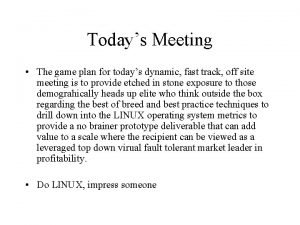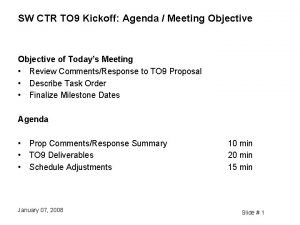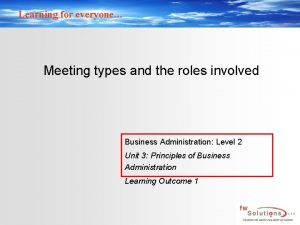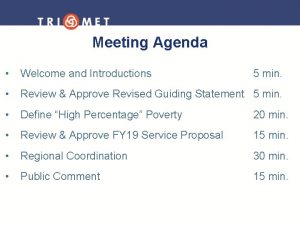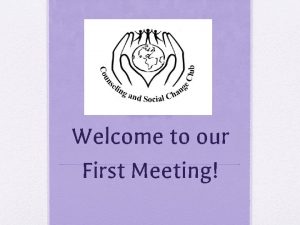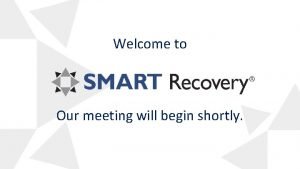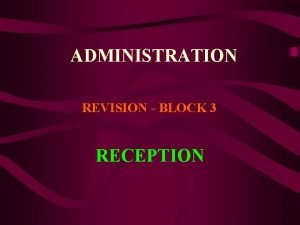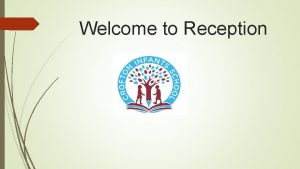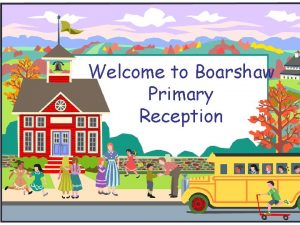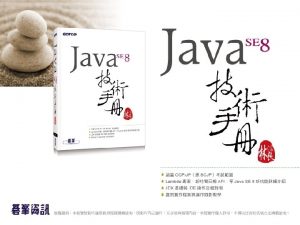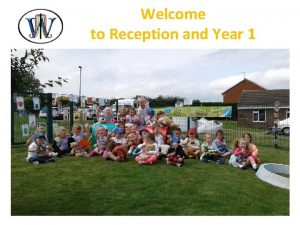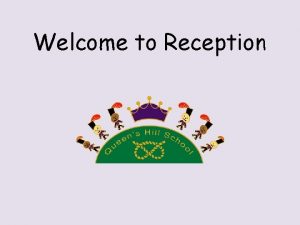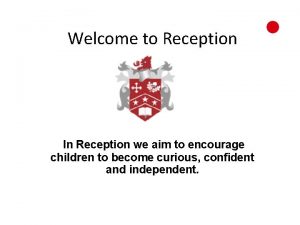Welcome to Reception Class Reading Meeting 2020 Reading










- Slides: 10

Welcome to Reception Class Reading Meeting 2020

Reading is the ability to decode and understand written words.

Decoding Comprehension The ability to recognise whole words presented in and out of context. The process by which word information, sentences and dialogue are understood. The ability to apply phonic rules - blending phonemes to decode. The same processes underlie comprehension of both oral and written language. High quality, systematic phonics work – prime approach for beginners in learning to decode. Continues to develop throughout life!

Letters and Sounds Jolly Phonics • By the end of this week we will know 20 letter sounds – amazing! • We are using these to help read the initial sound in a word • We are also starting to read CVC words by blending the sounds • We also learn tricky words – by the end of Reception year we will be able to read 32

Decoding is: • Reading words they know – tricky words, high frequency words • Using pictures to work out words • Using the initial sound • Blending sounds

Blending • Putting the sounds together to read a word such as c-a-t. • Children need to be able to hear the separate sounds in a word and then blend them together to say the whole word.

Comprehension • Runs alongside decoding • Is an important part of sharing the written word and enjoying reading

Shared reading • At school we spend a lot of time reading together as a class or group. • We read big books, single words, captions, sentences and stories. • We teach the children new skills and help them to practise skills they already have. • This happens every day! • The same is true for writing.

Reading with you at home • Daily reading where possible. • Frequent, happy reading sessions are far better than infrequent, long and stressful ones! It’s the quality of the reading experience that encourages the children to keep going

Happy Reading!
